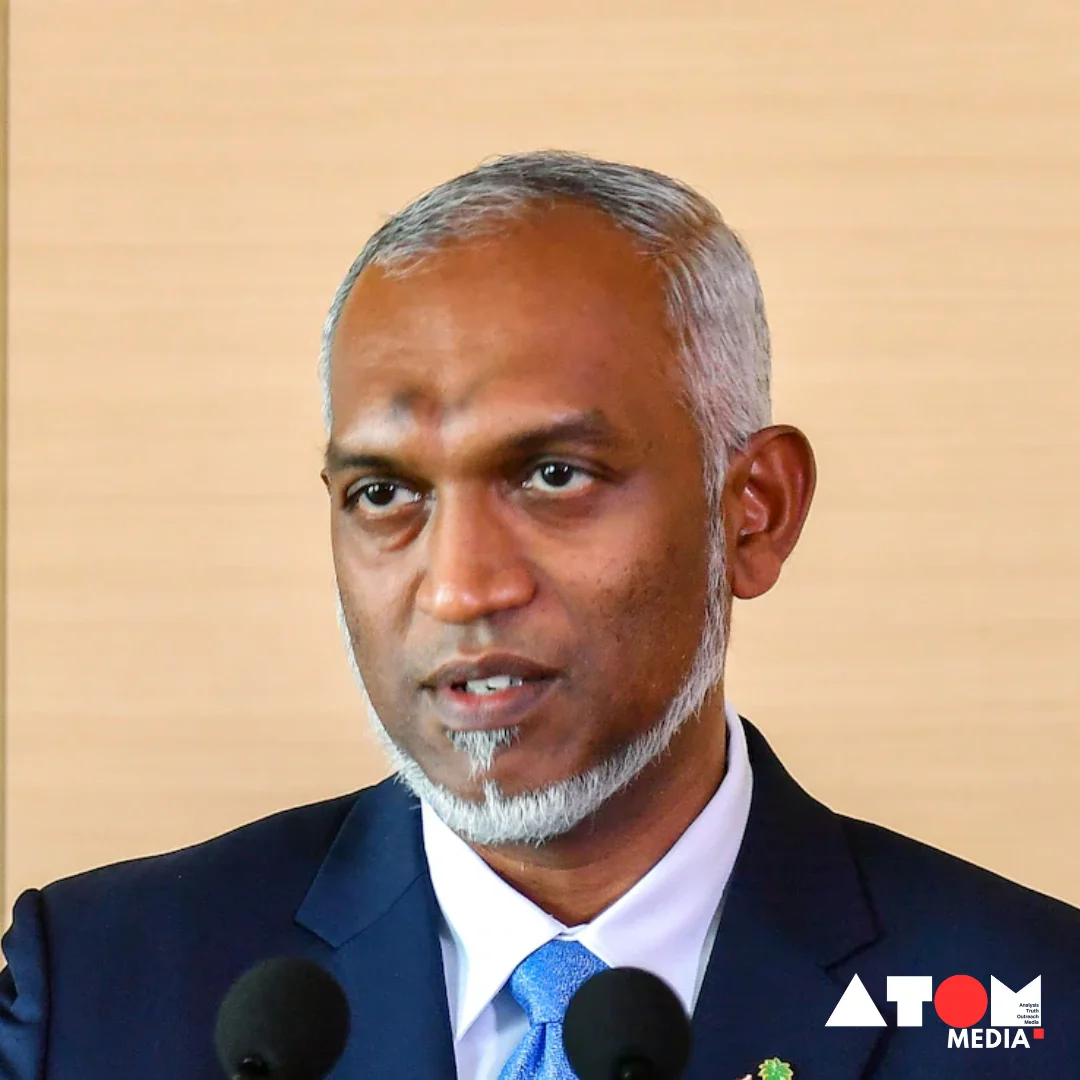Maldivian President Mohamed Muizzu’s party achieved a significant victory in Sunday’s parliamentary election, obtaining over 60 seats in Parliament, thus securing a “supermajority.” This outcome holds crucial significance, especially considering Muizzu’s pro-Beijing stance and the close monitoring of his policies by regional powers like India and China.
High Voter Turnout
The Elections Commission reported that 207,693 individuals cast their votes by 5:00 pm local time, resulting in a robust voter turnout of 72.96%. Among the voters, 104,826 were men and 102,867 were women. The election aimed to elect lawmakers for the 93 constituencies in the 20th People’s Majlis.
Diverse Candidate Pool
A total of 368 candidates contested in the election, representing various political entities. This included 130 independent candidates and nominees from parties such as the Jumhoory Party (JP), The Democrats, Maldives Development Alliance (MDA), Adhaalath Party (AP), and Maldives National Party (MNP).
Party Breakdown
Preliminary results revealed the dominance of Muizzu’s party, the Progressive Party of Maldives (PNC), which secured over 60 seats out of the 93-member People’s Majlis. This victory solidifies the party’s position, accounting for nearly two-thirds of the Parliament.
Distribution of Seats
The breakdown of seats saw the PNC clinching 67 seats, followed by the Maldivian Democratic Party (MDP) with 12 seats, and Independents securing 10 seats. Other parties like Maldives Development Alliance (MDA) and Jumhooree Party (JP) managed to secure one seat each. However, The Democrats, Maldives National Party (MNP), and Adhaalath Party (AP) failed to win any seats.
Shift in Political Landscape
In contrast to the 2019 elections where the MDP secured a supermajority, this election marked a significant shift in the political landscape. The PNC’s sweeping victory across all cities, including Male City, Addu City, and Fuvahmulah City, underscored a major setback for the main opposition, MDP.
Reactions and Reflections
The MDP expressed disappointment over the election results but affirmed its commitment to democratic ideals. Despite the setback, they congratulated their members who secured seats and emphasized the importance of perseverance and unity in achieving progress.
International Participation
The parliamentary election saw significant international participation, with 602 ballot boxes set up not only in the Maldives but also in three other countries—Thiruvananthapuram in India, Colombo in Sri Lanka, and Kuala Lumpur in Malaysia. This global outreach aimed to facilitate voting for Maldivian citizens residing abroad.
Challenges and Allegations
The election took place amidst challenges and controversies, including allegations of corruption against President Muizzu from 2018, which he vehemently denied. Additionally, the opposition parties demanded an investigation and impeachment of the president just days before the polls. However, Muizzu urged citizens to exercise their constitutional right to vote, emphasizing the importance of participation in the democratic process.
Smooth Conduct of Election
Despite the political tensions and controversies surrounding the election, the Elections Commission reported no major issues or complaints during the voting process. Complaints primarily centered around minor issues such as ballot papers not being folded before being placed in the box.
Expectations and Predictions
Former President Ibrahim Mohamed Solih, now serving as a top advisor at the MDP, expressed optimism about his party’s prospects, foreseeing a clear majority for the MDP in the election. However, the actual outcome painted a different picture, highlighting the unpredictability of electoral politics.
Geostrategic Implications
The election results carry significant geostrategic implications, particularly in the context of the Maldives’ relations with regional powers like India and China. Muizzu’s perceived pro-China stance has led to strained ties with India, culminating in the withdrawal of Indian military personnel from the country. Conversely, Muizzu’s visit to China resulted in various agreements, including a defense cooperation pact and infrastructure development projects.
The parliamentary election in the Maldives witnessed a decisive victory for President Muizzu’s party, consolidating its power in Parliament. While the results reflect a shifting political landscape, they also underscore the complex interplay of domestic and international dynamics shaping the future trajectory of the Maldives.
Read more: Marketing News, Advertising News, PR and Finance News, Digital News





